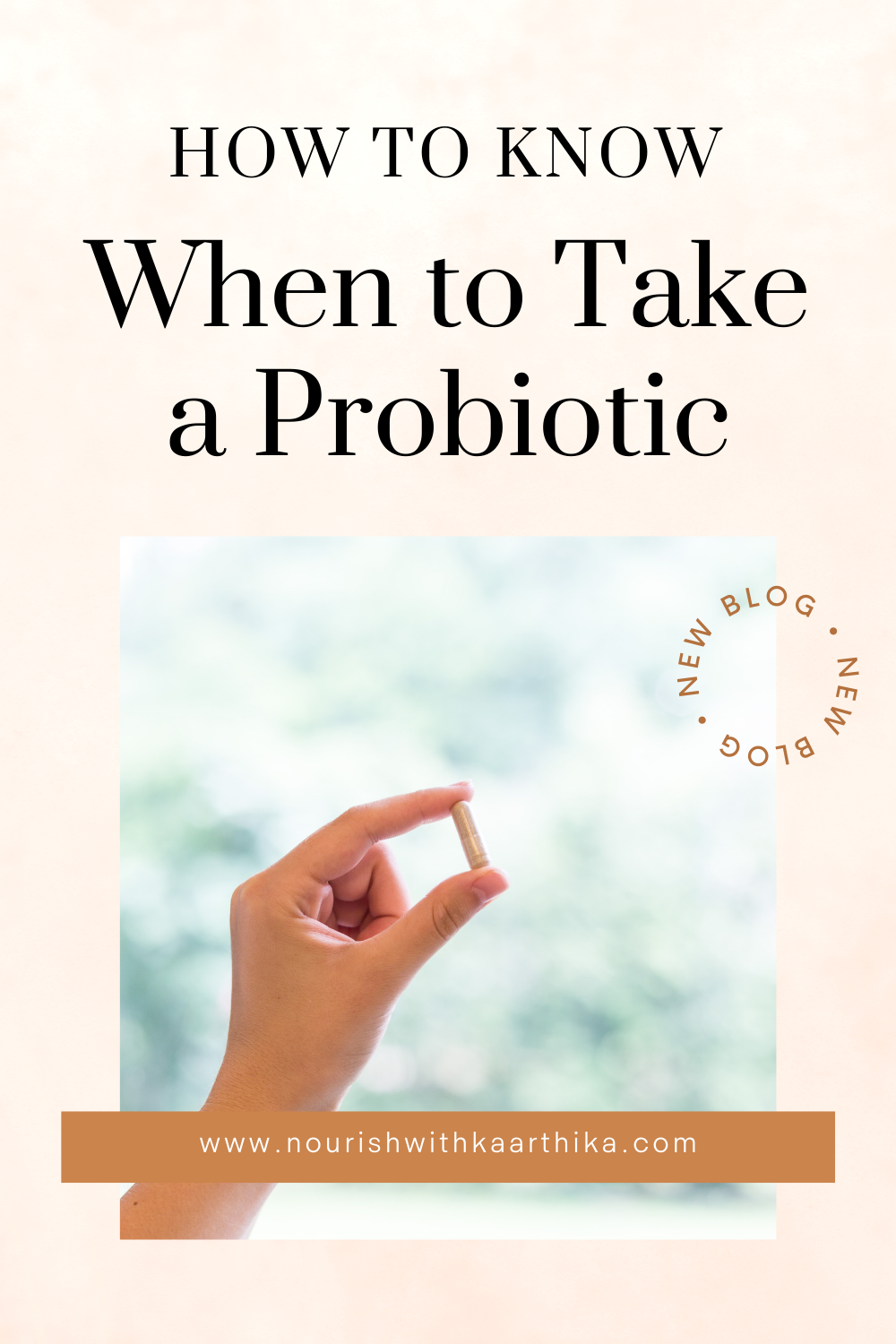Should You Take a Probiotic Everyday?
There are no shortage of probiotic products available on grocery shelves. And while probiotics play a key role in bringing balance to your gut, you may be surprised to know that not everyone actually needs to be taking a probiotic supplement.
So how do you know if a probiotic would be beneficial for you ?
What is a Probiotic?
Before discussing why probiotics are important, we first have to understand what they do.
Probiotics are the beneficial bacteria that encourage your existing population of bacteria to grow and take resources away from harmful bacteria. This means that probiotic supplements don’t actually repopulate your gut (think of it as hiring part time help to deal with heavier workloads). Once you stop taking probiotics, the benefits of them also subside.
A missing piece of the puzzle is prebiotics, which actually encourage your gut bugs to strengthen and grow.
But let’s talk about situations where taking a probiotic supplement would be beneficial:
When Taking an Antibiotic
While antibiotics are effective at killing an infection of bad bacteria, they also wipe out the population of good bacteria in your gut. This wipe out is often associated with diarrhea, constipation, or digestive upset when taking an antibiotic. In certain cases, this disruption to our gut microbiome can also lead to an overgrowth of other unwanted, pathogenic bacteria.
Taking a probiotic alongside an antibiotic can help to minimize digestive upset that occurs as a result of the disruption to our gut microbiome, and help to replenish levels of beneficial bacteria.
If you do choose to take a probiotic, it is important to take it a couple hours after taking antibiotics. It also may be beneficial to take probiotics for about 30 days after you finish your antibiotics to allow your gut flora to re-establish themselves.
While Traveling
The best thing about travelling is that we get to experience new places and environments. This also means that we also get exposed to new and different bacteria in foreign countries through food and water. And sometimes our gut can be more likely to react to these new visitors.
It is actually estimated that about 50 - 80% percent of traveler’s diarrhea is caused by pathogenic bacteria.
To help reduce the incidence of food poisoning or digestive distress while traveling, probiotics can help to fight new microbes and strengthen your gut microbiome.
When you have a Gut Imbalance
There are a variety of conditions and symptoms associated with an imbalance between the good and bad bacteria.
Using probiotic supplements during an imbalance can help to repopulate good bacteria in the body where the microbiome has been negatively impacted. Some of the most common conditions where a probiotic may be advised include:
Gastrointestinal issues
Gas and bloating
Diarrhea or constipation
Irritable Bowel Syndrome (IBS)
Crohn's disease or Ulcerative Colitis
Skin issues (such as eczema, acne or rosacea)
Small intestinal bacterial overgrowth (SIBO)
Gut dysbiosis










